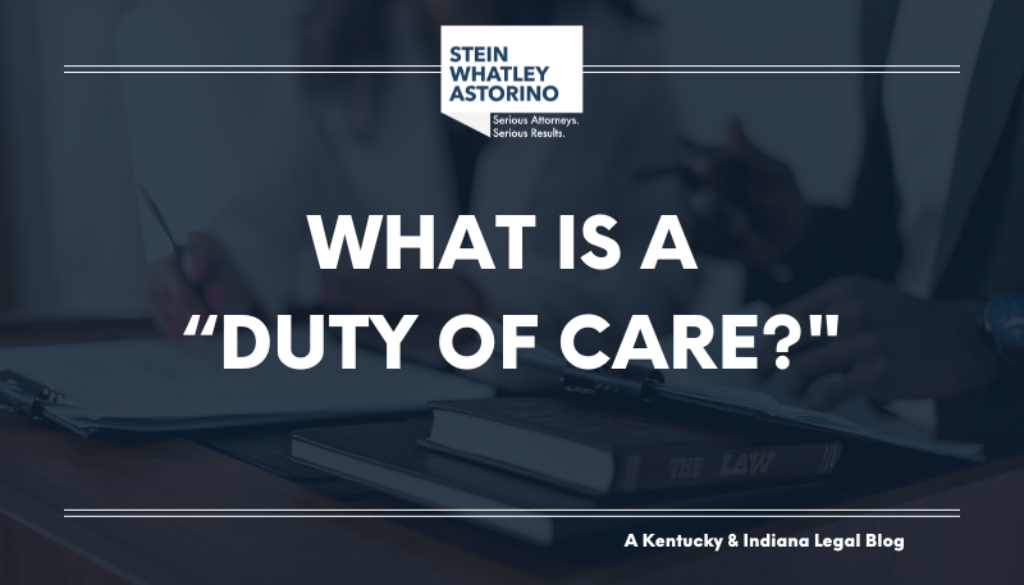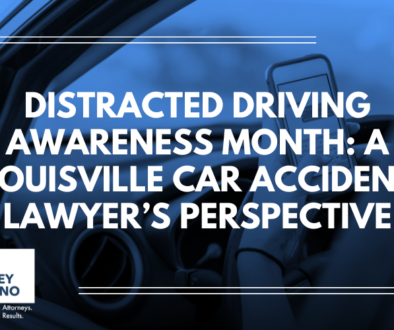What Is a “Duty of Care?”
“Duty of care” is a foundational principle in tort law, particularly relevant in cases of personal injury and wrongful death. It refers to the legal obligation imposed on individuals or entities to exercise reasonable care in their actions to avoid causing harm to others. In the context of personal injury and wrongful death, the failure to meet this duty can lead to liability if it results in injury or death. Today, we explore the concept of duty of care, its application in various tort cases, and its specific relevance to personal injury and wrongful death law.
Duty of Care in American Tort Law
In American tort law, negligence is the most common claim in personal injury and wrongful death cases, and duty of care is the cornerstone of a negligence claim. To succeed in a negligence case, the plaintiff must prove four elements: (1) the existence of a duty of care, (2) a breach of that duty, (3) causation, and (4) damages.
Duty of Care: The plaintiff must first establish that the defendant owed them a duty of care. In the U.S., courts assess whether a duty exists based on the relationship between the parties and whether the harm was reasonably foreseeable.
Breach of Duty: Once a duty is established, the plaintiff must show that the defendant failed to meet the standard of care expected of a reasonably prudent person under the same circumstances.
Causation: The plaintiff must demonstrate that the breach of duty directly caused the harm. This involves proving both actual cause (but for the defendant’s actions, the injury would not have occurred) and proximate cause (the harm was a foreseeable result of the defendant’s actions).
Damages: The plaintiff must show that they suffered actual harm, whether physical, emotional, or financial, as a result of the defendant’s negligence.
Duty of Care in Personal Injury Law
Negligence principles govern personal injury law in the United States, and the duty of care is pivotal in establishing liability. The duty of care in personal injury cases varies depending on the specific circumstances, but the general rule is that individuals must act with the same level of care that a reasonably prudent person would use in similar situations. Failure to meet this standard constitutes negligence.
Motor Vehicle Accidents
In the U.S., drivers have a legal duty to operate their vehicles safely and responsibly. This includes obeying traffic laws, driving at a safe speed, and avoiding distractions. If a driver fails to meet this duty and causes an accident, they may be liable for the resulting injuries. For example, a driver who runs a red light or drives while texting breaches the duty of care owed to other drivers, pedestrians, and passengers.
Medical Malpractice
Healthcare providers in the U.S. owe their patients a duty to provide care that meets the accepted medical standard of care. Medical malpractice occurs when a doctor, nurse, or other healthcare professional fails to meet this standard, resulting in injury or death to the patient. Examples of breaches in duty of care in medical malpractice cases include misdiagnosis, surgical errors, and failure to properly monitor a patient’s condition. In such cases, the plaintiff must demonstrate that the healthcare provider’s conduct fell below the expected standard and that this breach caused the injury.
Premises Liability
In the context of premises liability, property owners owe a duty of care to individuals who enter their property legally. This duty varies depending on the type of visitor. Invitees (people invited onto the property for business purposes, such as customers in a store) are owed the highest duty of care, while trespassers are owed a much lower duty. Property owners are expected to maintain reasonably safe conditions on their property and to warn visitors of any known hazards. Failure to do so can result in liability if someone is injured on the premises.
Duty of Care in Wrongful Death Cases
In wrongful death cases, the duty of care is essential in establishing liability. A wrongful death claim arises when someone dies as a result of another person’s or entity’s negligence or wrongful act. The deceased person’s family members or legal representatives may file a lawsuit seeking damages for their loss, including compensation for funeral expenses, lost income, and the loss of companionship.
In wrongful death cases, the plaintiff must prove that the defendant owed the decedent a duty of care and that the defendant’s breach of that duty directly caused the death. For example, in a wrongful death case arising from a car accident, the plaintiff must demonstrate that the defendant-driver had a duty to operate their vehicle safely, breached that duty (e.g., by driving while intoxicated), and that this breach caused the fatal accident.
Establishing Duty of Care in Various Tort Situations
American courts have developed various guidelines to determine when a duty of care exists and how it applies in specific situations. Several factors influence the court’s determination of whether a duty of care is present in a tort case, including foreseeability of harm, the relationship between the parties, and public policy considerations.
Foreseeability of Harm: Courts are more likely to find that a duty of care exists when the harm caused by the defendant’s actions is foreseeable. For example, in cases involving drunk driving, it is clearly foreseeable that operating a vehicle while intoxicated poses a danger to others, making it easier for plaintiffs to establish that a duty of care existed.
Relationship Between the Parties: The nature of the relationship between the plaintiff and defendant often plays a role in establishing duty. In professional settings, such as the doctor-patient relationship, a clear duty of care exists. Similarly, manufacturers owe a duty to consumers to ensure that their products are reasonably safe for use.
Public Policy Considerations: Sometimes, courts weigh broader public policy concerns when determining whether to impose a duty of care. In some cases, imposing a duty might place an undue burden on certain professions or industries. In contrast, in others, the need to protect public safety justifies the imposition of a duty. For example, courts have imposed this on businesses to take reasonable steps to prevent foreseeable crimes on their property, such as assaults or robberies.
A Fundamental Concept
The duty of care is a fundamental concept in American personal injury and wrongful death law, providing the basis for determining liability in negligence cases. Its evolution, from its roots in English common law to its development in Kentucky and Indiana cases, has broadened its application across various areas of tort law. In personal injury and wrongful death cases, the duty of care ensures that individuals and entities are held accountable when their actions or omissions cause harm to others. As Kentucky and Indiana tort laws continue to evolve, the duty of care will remain a central concept in promoting justice and safety.
Call Stein Whatley Astorino, PLLC, to schedule your free and confidential case evaluation. Our top Louisville wrongful death attorneys are available to answer your questions. 502.553.4750.
Serious Attorneys. Serious Results.
Real Client Reviews
Highly Recommend
“I would highly recommend these attorneys. Rob is the best. He helped me in a case. We won the case and got paid what I was owed. If you need attorneys these are the people that will fight for you and the only lawyers I will trust.”
-Jacob Yeager
Google 5- Star Review
Fair and Honest
“Been using him for years. His whole team is great! They are fair, honest and really will go to work for you in a big way. Can’t go wrong.”
-Carey Hulsey
Google 5- Star Review




